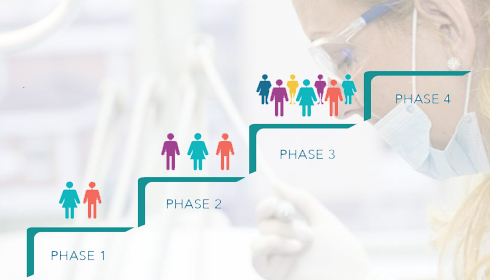
Indian Study Finds Two-Drug Combination Pill Effectively Lowers Blood Pressure
A groundbreaking study presented at the American Heart Association’s Scientific Sessions 2024 demonstrates that a two-drug combination pill effectively reduces blood pressure in Indian adults, offering a practical solution for addressing the country’s widespread hypertension challenge.
The trial, known as TOPSPIN, included nearly 2,000 participants across India and tested three drug combinations: amlodipine-perindopril, perindopril-indapamide, and amlodipine-indapamide, each formulated into a single pill. All combinations proved equally effective, with over 70% of participants achieving blood pressure levels below 140/90 mm Hg.
Dr. Dorairaj Prabhakaran, the study's lead author and executive director of the Centre for Chronic Disease Control in New Delhi, highlighted the significance of the findings. “South Asians account for one-fourth of the world’s population, and India, in particular, has an enormous burden of hypertension, leading to high stroke and cardiovascular disease risk,” he explained. “Optimal blood pressure management is essential to lower the cardiovascular complications of high blood pressure.”
The study demonstrated significant efficacy, with all three drug combinations reducing blood pressure by an average of 30/14 mm Hg in clinical settings and 14/8 mm Hg in 24-hour ambulatory monitoring. This effectiveness was paired with high tolerability, as fewer than 3% of participants discontinued treatment due to side effects. Among the combinations tested, amlodipine-perindopril showed an additional benefit of improving fasting blood sugar levels after six months, highlighting its potential for addressing multiple health concerns. The findings were further strengthened by the diversity of the participant pool, which included individuals aged 30 to 79, both with and without Type 2 diabetes, demonstrating the broad applicability of the treatment approach across various demographics.
Dr. Prabhakaran emphasized the study's implications beyond India. “These findings have huge relevance for the over 5 million South Asians living in the U.S.,” he said, pointing to the potential for improved hypertension management in this population.
The trial aligns with calls for more straightforward approaches to managing hypertension. Fixed-dose combination pills simplify treatment regimens, a method recommended by the American Heart Association's 2021 guidelines. Simplification may help improve adherence, which remains a challenge in hypertension control.
Despite the encouraging results, the findings are preliminary and await peer-reviewed publication. Dr. Prabhakaran also noted that 17% of participants did not complete the six-month trial, a factor that may affect the generalizability of the results.
This research underscores the urgent need for focused solutions to combat the growing cardiovascular risks in South Asia and presents a potential pathway for better health outcomes in affected populations.